27 Best Emotional Support Dog Breeds: For Anxiety, Depression & More
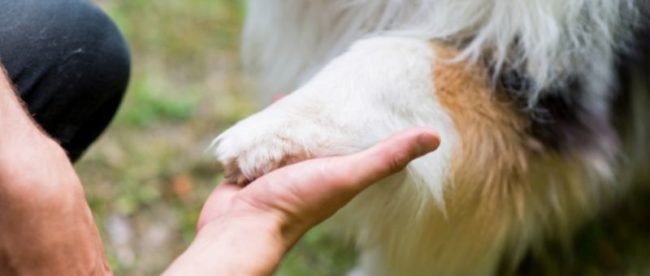
Emotional support animals (ESA) provide comfort and attention and can be of any animal kind. Of course, we’re most familiar with dogs as the primary animal in this position. When people care for their dog, whether through feeding, grooming, or walking, it offers a sense of purpose and can divert focus away from the things that cause anxiety and other mental health problems. While dogs cannot give counsel, they are terrific listeners (or appear to be)—which is a huge benefit for folks who want to talk it out without being judged. They all add up to the most loyal and friendly dog breeds you could possibly wish for, whether they’re a cute small dog breed or a huge lovable one.
Do you have a specific question about the subject? Then use the table of contents below to jump to the most relevant section. And you can always go back by clicking on the black arrow in the right bottom corner of the page. Also, please note that some of the links in this article may be affiliate links. For more details, check the Disclosure section at the bottom of the page.
Here's what we'll cover:
- What is the ideal dog for someone who suffers from anxiety?
- What makes a good emotional support dog breed?
- Airedale Terrier
- American Pit Bull Terrier
- Beagle
- Bernese Mountain Dog
- Bichon Frise
- Border Collie
- Boxer
- Cavalier King Charles spaniel
- Chihuahua
- Dachshund
- Doberman Pinscher
- German Shepherd
- Golden Retriever
- Great Pyrenees
- Havanese
- Irish Wolfhound
- Lhasa Apso
- Maltese
- Pembroke Welsh Corgi
- Pomeranian
- Poodles
- Pugs
- Saint Bernard
- Shiba Inu
- Vizsla
- Yorkshire Terrier
What is the ideal dog for someone who suffers from anxiety?
When making your decision, you’ll need to examine your own personality, the nature of your anxiety, the type of care you’re capable of offering, and the type of support you desire from your dog. Some breeds (including those mentioned above) are generally solid selections when you are looking for best dogs for anxiety,, but it is always a personal choice.
What makes a good emotional support dog breed?

The connection between the dog and the owner is the most crucial factor to consider.
The dog already has a close attachment, and the dog likely picks up on the owner’s emotional response to triggers and can offer calm, comfort, and security. If a person does not already own a dog, the connection component is equally vital while searching for an emotional support dog. Furthermore, the dog should already be well-mannered at home, in public, and with other people and pets. Otherwise, you can learn alongside basic obedience training.
Emotional support dogs should be tuned into their human and react to what their human says or does, whether it’s with a happy dance, cuddling on the sofa, or sobbing when they’re upset.
Airedale Terrier
In case you have allergies, here is a hypoallergenic dog. Airedale Terriers can weigh up to 70 pounds, but they are versatile and excellent companions. Their majestic stance, paired with that one-of-a-kind beard and mustache, exudes respect, making owners pleased to transport these dogs wherever. Terriers are both vigilant and patient. You can rely on an Airedale Terrier to protect your property while also keeping you physically engaged.
American Pit Bull Terrier
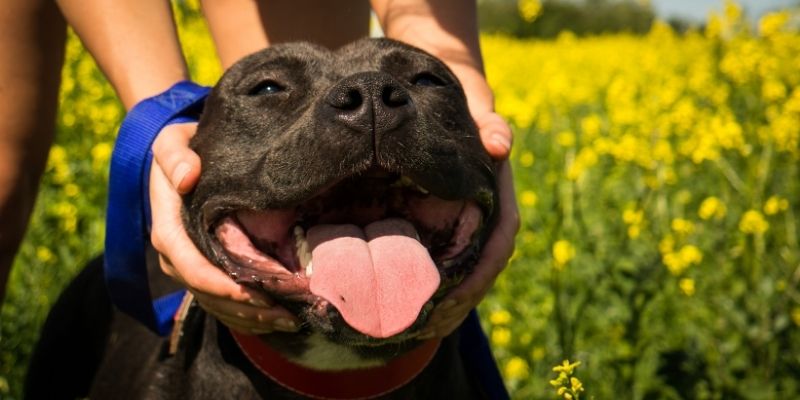
Another great breed to choose as an emotional support dog. This recommendation may surprise individuals who are unfamiliar with pit bulls. Still, those who are familiar with the breed will find it unsurprising.
After all, pibbles (as they’re affectionately known by their owners) are frequently incredibly loving and affectionate dogs who enjoy doling out cuddles and kisses. They’re also self-assured, outgoing, and loyal, making them ideal for persons in need of an ESA.
They do, however, create certain difficulties (as all breeds do). For example, many pit bull puppies are super chewers who will require practically indestructible chew toys and plenty of entertainment to avoid boredom. It may cause them to use their chompers on your stuff).
Pibbles also have a lot of energy, so they aren’t the best choice for apartment living unless you intend on going to the park every day.
Beagle
Beagles are slightly dopey – in a nice manner — and utterly adorable as pets. Their endearing personalities ensure that they make excellent ESAs. Beagles have the best of both worlds in terms of character since they may be active and enthusiastic or cuddly and peaceful. Beagles are extremely adaptable ESAs.
Bernese Mountain Dog
Bernese likes humans but must be coaxed out of its shell – early socialization is critical for the Bernese. These dogs are devoted to their owners and nice to others.
These characteristics, combined with their exceptional strength and work ethic, make them outstanding therapy dogs.
Bichon Frise
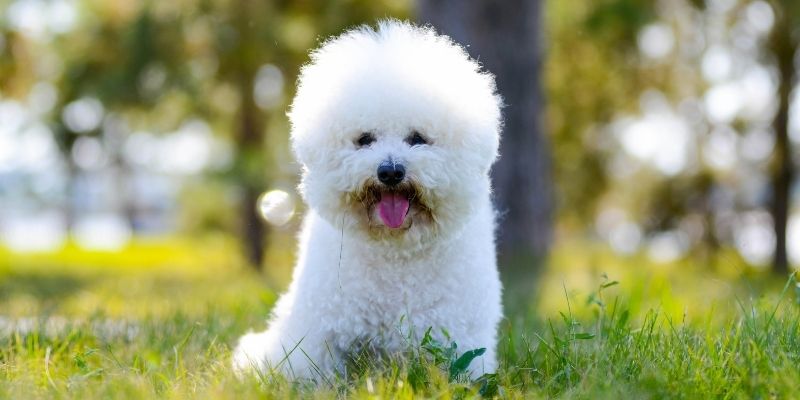
One other terrific breed to get for as the best therapy dog breeds. Bichon Frise may be precisely what the doctor ordered if you need a few more smiles in your life.im
These happy-go-lucky cuties are among the world’s friendliest breeds. They usually greet everyone they meet with a set of massive puppy eyes and a wagging tail. So naturally, they’d rather be next to their pup parent than anywhere else.
Bichon Frises are intelligent and easy to teach, so they won’t give you too many headaches. However, they necessitate quite elaborate grooming, so make room in your cash for regular trips to the groomer. They do not, however, shed a lot. As a result, allergy patients should exercise caution.
Border Collie
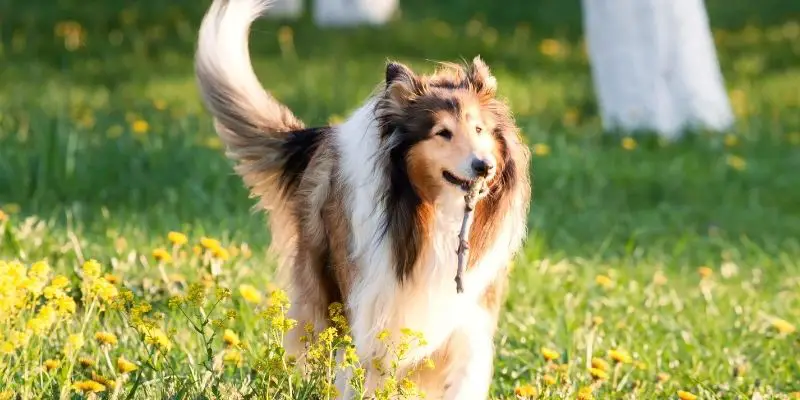
There aren’t many breeds that are smarter than this! Border collies are dedicated, pleasant companions who are easy to teach, affectionate, and people pleasers. The border collie, a herding dog by nature, will drive and inspire you to get moving even when you don’t feel like it.
This characteristic makes them wonderful dogs for people who suffer from depression. Furthermore, this content, calm canine will provide plenty of grounding and physical comfort if you suffer from anxiety.
Boxer
This one Is one of the best emotional support dog breeds for anxiety and depression.The boxer, like the Bernese, must be socialized from an early age to appreciate being around people and other animals. A well-trained boxer is a highly intelligent, powerful companion animal that provides security to those in need.
Boxers must exercise both physically and mentally. So, if you enjoy rejuvenating in the great outdoors, this is the dog for you.
Cavalier King Charles spaniel
Cavaliers were bred to be companion dogs, so their genetics run deep as loving comforters. They are unquestionably adorable, well-mannered, and tiny in stature, making them ideal apartment dogs. This breed is a fantastic choice for those who seek the companionship of their emotional support dog in a metropolitan location. They adore adults, children, and animals. They could serve as an icebreaker, assist you in socially problematic circumstances, and reassure or console you when you return home.
Chihuahua

Another excellent breed to consider as a service dog breeds. Chihuahuas have a cheeky disposition that appeals to a wide range of people. They are considered a toy breed and are maybe the smallest dog on the list. Chihuahuas require a lot of love and attention. They are quite easy to transport and will appreciate every time they spend with you.
These young puppies form strong bonds with their favorite individual, who is usually the person who spends the most time with them. They must be socialized at a young age or they become yappy and possibly aggressive to other people and animals.
Dachshund
This low-to-the-ground pup is one of the most adorable emotional support animals around, but don’t be fooled by its little stature. It packs a powerful punch when it comes to defeating the blues. Dachshunds are born hunters with an acute sense of smell and emotional intelligence. In addition, they are amiable, loyal, and excellent with children.
You should also plan on having this devoted breed around for a long time because they live an average of 15 years, sometimes even up to 20 years.
Doberman Pinscher

Another excellent choice if you are looking for therapy dogs breeds. Look no further than the ever-dependable Doberman pinscher if you need to feel safe and secure. The Dobie is known as a “velcro” dog because of its capacity to form a strong attachment with its owner. The breed is pleased to stay close by and is extremely trainable and protective.
On the other hand, Dobies require substantial socialization from an early age to not regard every contact as a potential threat.
German Shepherd
German Shepherds are energetic and intelligent. These two characteristics make them suitable as emotional support animals. They also enjoy interacting with people, and if properly trained, they will make excellent companions in public places.
Golden Retriever
Golden retrievers have long been one of the most popular dog breeds in the United States, serving as emotional support animals and general family pets. Their gentle demeanors and outward warmth make them an excellent choice for persons dealing with medical concerns. They are also highly trainable, which is an added plus.
Great Pyrenees
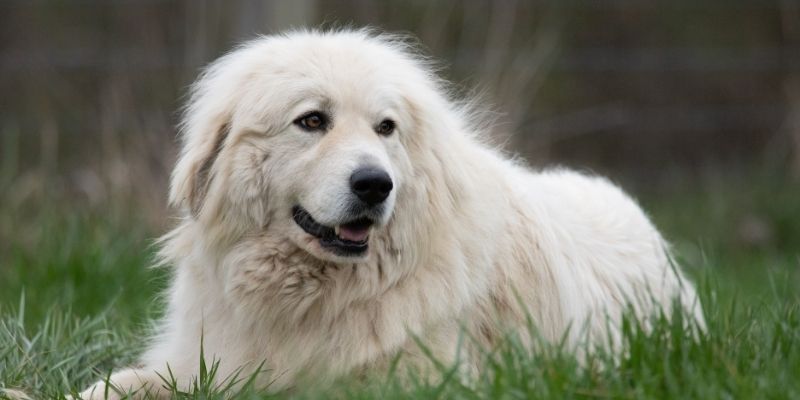
One other wonderful breed to get for those searching for emotional support puppy. The AKC describes Great Pyrenees as “calm, tolerant, and smart.” They are friendly dogs that are excellent for decreasing anxiety.
Remember that these are large dogs, so make sure you have adequate room for them. Females typically average around 85 pounds, while males weigh 100 pounds or more.
Havanese
If you want a dog that is sweet and loving while yet being full of activity and bravery, the Havanese is a good choice.
These canines are wonderful for owners who suffer from anxiety. They will benefit from the unending buckets of love for their people. They are sometimes referred to as “Velcro dogs” because they want to stay by their owner’s side as much as possible.
However, because the Havanese is a social butterfly, you must be okay with your dog enjoying everyone else. However, they normally behave well while traveling by your side. They make excellent companions or therapy dogs for people who want ongoing care.
Irish Wolfhound
Irish Wolfhounds may appear to be an unexpected entry to the list due to their lack of popularity. On the other hand, these puppies are renowned as gentle giants, so if you need a human-sized cuddler, they will do the work.
Irish Wolfhounds are hairy and massive, but they are extremely sensitive. They can instantly detect when you are depressed and work to make you love yourself again. They are graceful and enjoy running. It is preferable if you have a place where they may run around freely to satisfy their craving for activity.
Lhasa Apso
Another great breed making the list of best therapy dogs. This small dog has a kind demeanor and is ideal for people suffering from PTSD, depression, or bipolar illness. They, too, are “mood readers” and are known to “nudge” their owners in certain situations toward the proper course of action.
Lhasa apsos are easily trainable, extremely demonstrative, and ideal for people who seek uplifting companionship.
Maltese

The Maltese may be the emotional support dog for you if you seek a silky white pint-size cuddle bug with big expressive eyes. When they’re not snuggled up on your lap, they’re the life of the party, even if it’s just the two of you. Those dogs are an excellent choice for a single adult since they have a particular individual to whom they cling. They can’t give you medical advice, but they can console and soothe you with a lick or a muzzle snuggle. The Maltese is likely to be nearby as an emotional support animal most of the time. Keeping them in your eyes is still a good idea because they are one of the most stolen dog breeds.
Pembroke Welsh Corgi
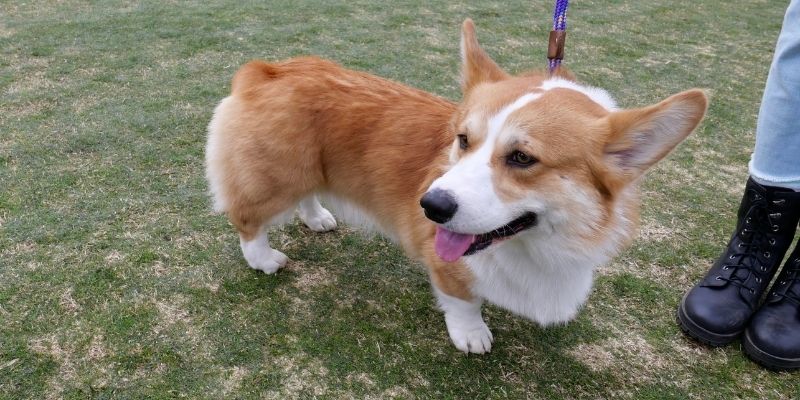
Corgis are classified into two breeds: Pembroke Welsh and Cardigan. Although both breeds make wonderful family members, Pembroke Welsh Corgis are the more affectionate of the two. These dogs are a little ungainly on their shorter legs, but they are energetic and amusing.
The appearance of Corgi is part of what makes them so endearing. They don’t have to work too hard to win your heart, with foxlike faces, stumpy legs, a lengthy body, and a famous heart-shaped butt.
Pomeranian
The little Pomeranian, with a maximum weight of only 7 pounds, is rich in personality and charm. These friendly canines have bright and energetic personalities and are nice to everyone. Furthermore, their devotion to their owners is unwavering.
Poms can flourish in almost any environment, are intelligent and easily trainable, and make excellent emotional support animals for anyone who requires one.
Poodles
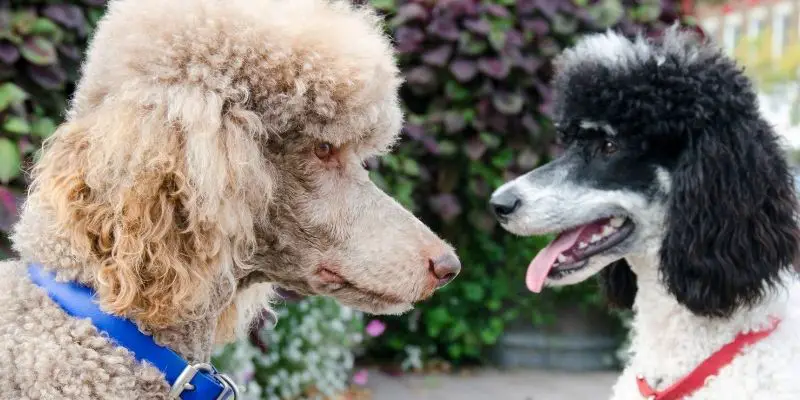
Part of the appeal of owning a dog is the way they interact with you – almost like humans, but better. A Poodle’s intellect allows you to look into their eyes and see their emotion.
Poodles are unusual dogs with a tendency to be optimistic. They are also hypoallergenic, making them an excellent choice for persons who suffer from allergies.
Pugs
A whole other wonderful breed that probably is one of the best emotional support dogs for anxiety. Pugs aren’t for everyone, but those who give them a chance will be rewarded with an abundance of affection and entertainment.
The Canadian Kennel Club defines their expression as “human-like,” which may explain why it is so simple to bond with these tiny lovers (though their enormous hearts undoubtedly help).
Saint Bernard

The powerful and hefty Saint Bernard is a dog developed for hard work in Switzerland’s cold, snowy mountains. Saint Bernard is a loyal and affectionate dog who makes an excellent service dog. St. Bernard, well-known as the rescue dog of the Alps (or your local ski slope), is frequently utilized in snowy search-and-rescue efforts. This calm and gentle canine companion is also an excellent emotional support dog for elders or anyone needing a canine companion.
Shiba Inu
Many of the finest dogs for emotional support that we’ve discussed so far are dogs that prefer being snuggling and cuddly. Suppose this isn’t something you’re interested in. In that case, a Shiba Inu can be a good choice for an emotional support animal.
These dogs are intelligent, quiet, and clean. However, because they are not highly affectionate and are relatively independent, they are not the greatest emotional support dogs for many individuals.
They may, however, be the ideal support dog for you.
Vizsla

The vizsla is a lesser-known breed in the United States. Still, it is becoming more popular as a companion pet and emotional support animal. These Hungarian pointers, bred for hunting, are cheerful and people-oriented. Vizslas have a lot of energy and require a lot of outdoor activity, so if you don’t get out often, this may not be the dog for you.
Vizslas are intelligent, quick learners who can do any work assigned to them. In addition, their joyful demeanor makes them a perfect choice for a support dog. Vizslas, like pugs, bond with almost everyone and thrive in homes with children.
Yorkshire Terrier
A Yorkshire Terrier, or Yorkie, is another small-dog alternative. They are one of the the tiniest dogs, and witnessing one as a puppy will melt your heart. These tiny pups form close bonds with their owners and want to be near them wherever they go. So isn’t it convenient that they fit within your bag?
Credits: thanks for the cover photo to Canva.

Disclosure: At pawtypooch.com we only mention the products that we’ve researched and considered worthy. But it’s important to note that we are a participant of several affiliate programs, including VigLink, ShareASale, Skimlinks, and Amazon Services LLC Associates Program, an affiliate advertising program designed to provide a mean for us to earn fees by linking to Amazon.com and affiliated sites. As an Amazon Associate pawtypooch.com earns from qualifying purchases. Also, please note that pawtypooch.com does not intend to provide veterinary advice. All published articles are meant for informational purposes only. And this information should not be substituted for professional veterinary consultation.

